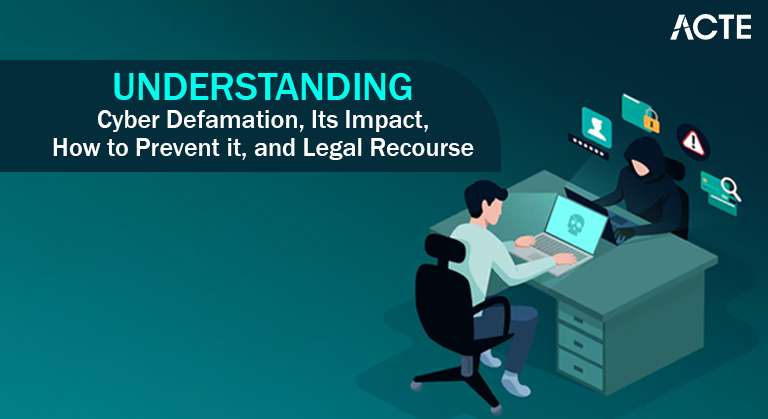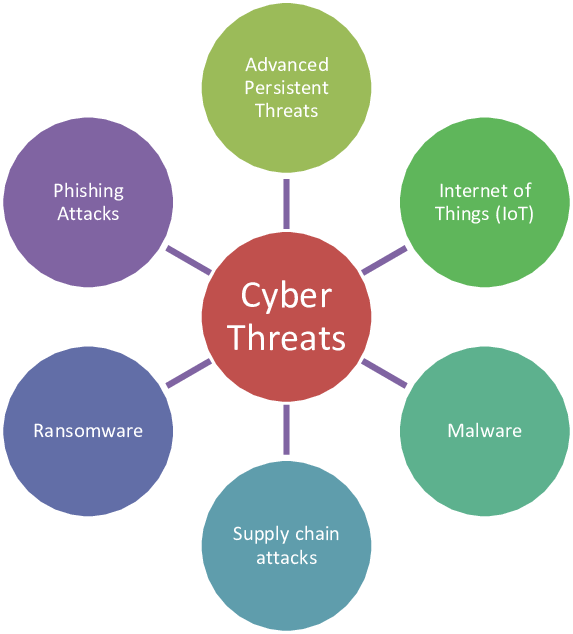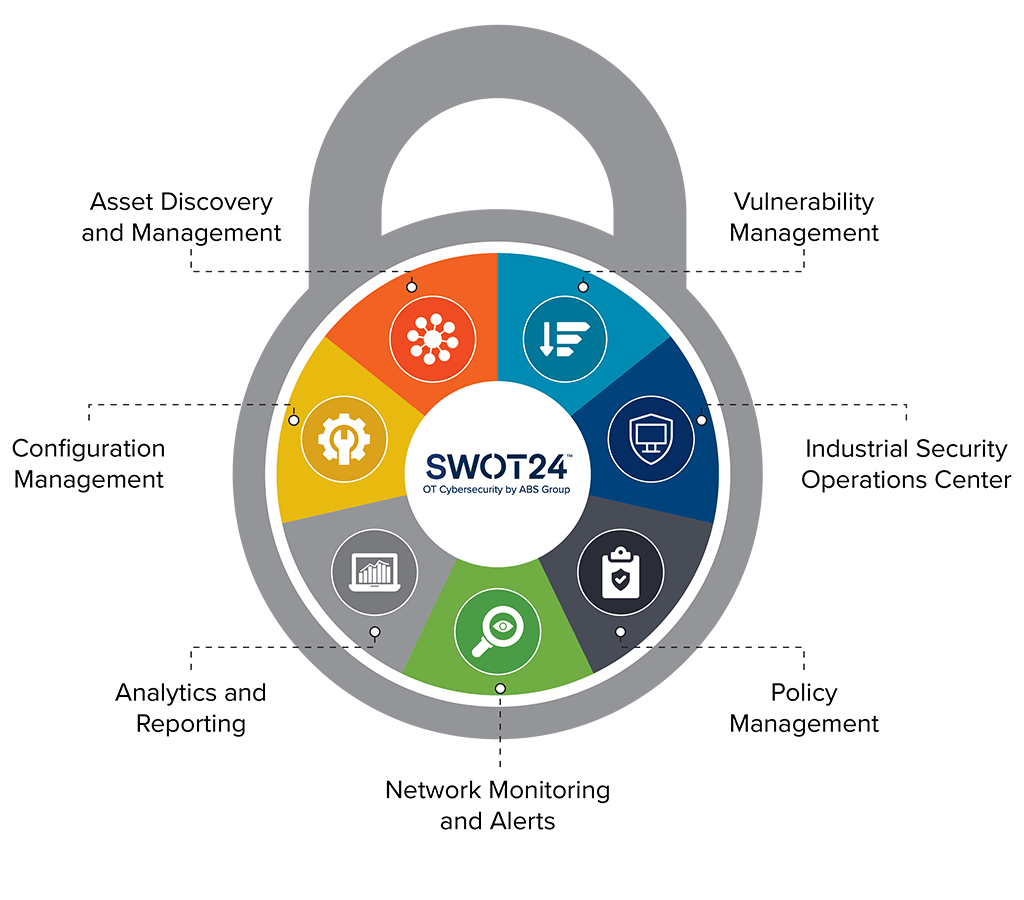
- What Do You Mean By Cyber Defamation?
- Types of Cyber Defamation
- Effects of Cyber Defamation
- Legal Framework and Consequences
- How to Combat Cyber Defamation
- How Should You Respond to Cyber-Defamation?
- Conclusion
Cyber defamation is one of the fastest-growing issues in today’s digital world, where a single false or damaging statement made online can spread like wildfire on various platforms. Unlike traditional forms of defamation, which are usually limited to print or verbal statements, Cyber Security involves the Internet and digital platforms, making it much wider reach and potentially harmful. Whether through social media, blogs, online reviews, or emails, such content can cause great damage to an individual’s or business’s reputation, personal life, and career. Cyber Awareness is crucial in this context, as it helps individuals and organizations recognize the risks of online interactions and take steps to protect their digital presence. Underlying such navigation lies an understanding of the various types of cyber law, its effects, and the legal action that can be taken to deal with it. Here, we shall look into all these considerations in more detail so it becomes easy for you to know how to protect yourself or your business if it becomes subject to cyber safety and how to go about when you are the victim.
To Earn Your Cyber Security Certification, Gain Insights From Leading Cyber Security Experts And Advance Your Career With ACTE’s Cyber Security Online Training Today!
What Do You Mean By Cyber Defamation?
Reputation has never been more fragile than now, with the burgeoning popularity of social media, blogs, and online forums. Cyber defamation spreads false or destructive information about any individual, organization, or business online. It differs from conventional defamation, which is practised through print or oral media, as it operates in the cyber sphere by using numerous digital networks, including social media, review websites, blogs, and emails.
Cyber Security Training Courses can be seen as an online affair in which malicious individuals or entities spread false information that damages a person’s reputation. This could be as close as fake reviews about a company or spreading unfounded rumours about a person. The biggest danger with cyber security is its ability to spread fast, making it hard for the victim to control or undo the damage.
Types of Cyber Defamation
Cyber defamation can take numerous forms as it varies with the base of operation and the extent of the defamatory content. The following are some common forms:
- Blog Libel: False or misleading posting on the Internet on blogs, often by anonymous or unverified authors. One of the tools that cybercriminals might use to gather information for such defamatory posts is a Keylogger.
- Review Platform Libel: False and libelous reviews published on websites such as Yelp, Google Reviews, or other business rating forums. Competitors or unsatisfied customers may use false negative reviews to harm a company’s reputation.
- Forum Defamation: Negative comments made on community forums or websites in which users post false or damaging information about third parties. Occasionally, these types of defamation posts can spread virally through a niche community.
- Email Defamation: Information or rumours distributed using email that may reach multiple recipients. A malicious anti-character assassination campaign through emails falsely accusing someone of wrongdoing may ultimately damage that person’s career or relationships.
- Deepfake Defamation: Posting fabricated content through AI-created media, such as video or audio clips, damages someone’s reputation. A video of a public figure uttering wrong or damaging things can worsen the case.
- The victims of online defamation undergo a great amount of mental disturbance during the process, leading to anxiety, depression, and one’s complete loss of self-esteem.
- The public aspect of online defamation makes it considerably more destructive because it can be easily posted and released to different audiences. The victim feels at the mercy of other people.
- False information online usually causes tension with family, friends, and colleagues based on defamatory content. In some cases, cyber threats may use Payloads to spread such false information.
- Social isolation or severed connections may result from others believing the harmful content.
- In the digital world today, reputation and professional life go hand in hand. Cyber Security can result in job loss, career stagnation, or a lower probability of finding a future job.
- Slanderous accusations involving unethical behaviour or criminal activity are particularly damaging in the workplace.
- Sometimes, Cyber Security results in the leakage of personal information such as addresses, telephone numbers, or even individual messages.
- These will be used for identity theft or further harassment, thereby aggravating the emotional and economic after-effects.
- In the business context, cyber defamation is worse than any other case, whether it results in the loss of customers ‘ trust or the loss of the business’s income.
- Negative reviews or defamatory statements about a business can destroy customer confidence and move away many would-be clients.
- In the era of online reputation, one defamatory review or post can prove costly. Legal fees for Cyber Security Training Courses, crisis management efforts, and reputation repair can be expensive.
- Further direct, immediate business loss due to reputation damage might have further financial implications in the long term.
- A company’scompany’s reputation is a precious asset; online defamation causes irreparable harm to a brand image.
- Businesses usually never fully recover from a public scandal or false claim, and defamation can harm a company’s employees.
- They may feel demoralized or unsafe enough, leading to low productivity and, worst of all, potential turnover turnover.
- Search online for your name or personal data regularly to know what people say about you. Set up Google Alerts on your name to track web mentions.
- For example, you can dictate privacy settings on social media sites and other online accounts to prevent people from accessing your information.
- Think Before You Post. Think about the content you upload online. Do not upload information that could be misinterpreted as a scam or something against you.
- Invest in Reputation Management. Organizations like reputation monitoring and management services can help you quickly correct and remove damaging items.
- Use reputation management tools or services that allow you to track the mention of your brand online. This can detect defamatory content much earlier, thus making intervention much earlier. In the realm of Cyber Media, these tools can scan various online platforms, including social media, blogs, and forums.
- It would help if you had a clear plan for handling cyber defamation. This plan should involve how you communicate with your audience, ask for such harmful content to be removed, and engage with the parties involved.
- The next thing to do is to act immediately if you encounter defamatory content online. Ensure that your response is factual and truthful, and ask them to delete such content.
- Consult an attorney who specializes in cyber security tips or internet law. He can help you determine your available legal options.
Interested in Obtaining Your Cyber Security Certificate? View The Cyber Security Online Training Offered By ACTE Right Now!
Effects of Cyber Defamation
Individual Impact

Effect on Businesses
Legal Framework and Consequences
Cyber defamation, like most other forms of defamation, has legal remedies in many countries, with the body of law being different in each jurisdiction. Defamation laws provide for cyber protection from false assertions that may harm the reputation of an individual or an organization. The utterance must have harmed the plaintiff’s reputation if the challenged statement about the plaintiff was untrue. In the context of online defamation, one way to identify vulnerabilities that could lead to such harmful statements is through Network Penetration Testing. The respondent must be liable for the act, which may be either negligence or actual malice. Legally speaking, libel pertains to written defamation, while slander pertains to verbal defamation. Since most online sites are written, most of the sources of online defamatory content are categorized as libel. There are many countries that have enacted cybercrime-specific acts that cater to issues associated with online harassment, cyberbullying, and defamation. For example, the DMCA Act gave individuals the right to remove defamatory content from any website in the United States.
Thus, protection against privacy violations from the General Data Protection Regulation in the European Union protects the victim’s right to bring legal action for defamation. Civil Redress: The individual can recover damages that the defamation causes him. These are damages involved in the loss of reputation, emotional distress, and legal costs that he incurred. Criminal Redress Cyber security threats may result in criminal charges, depending on jurisdiction. Such offenses are usually involved in cases involving harassment, threats, or privacy violations. Criminal offenders may be sentenced to fines or imprisonment. The courts can order to remove defamation content from websites, social media platforms, or review sites. Cyber security law perpetrators may also suffer reputational damage when their activities are exposed, which creates public outcry or even legal repercussions.
Are You Considering Pursuing a Cybersecurity Master’s Degree? Enroll For Cyber Security Expert Masters Program Training Course Today!
How to Combat Cyber Defamation

How Should You Respond to Cyber-Defamation?
If you are the victim of Cyber Security, act aggressively as early as possible to limit damage and seek legal Redress. Take screenshots or save copies of the defamatory material, URLs, and dates and timestamps. The images will come in handy if you choose to take legal action. In such cases, a Sandbox Environment can be useful for analyzing malicious content safely. Please write to the website or social media, blog or review site that published the defamatory content, and ask them to remove it. If you know who it is, you can also directly contact them requesting a retraction or removal of the offending content. If you suspect such a situation, seek legal advice from a lawyer specializing in defamation. They may give you an idea of whether you will emerge victorious or not, and they can help you follow up on that if you win.
Want to Learn About Cyber Security? Explore Our Cyber Security Interview Questions and Answers Featuring the Most Frequently Asked Questions in Job Interviews.
Conclusion
Cyber defamation is one of the shocking trends in today’s today’s world. It may seriously affect individuals and companies- from private lives to professional affairs. Understanding what cyber defamation is, how it happens, and the legal remedies available help those who want to protect their reputation on the World Wide Web. The damage to cyber defamation victims would be minimized, and they will be able to recover from the harm of Cyber Defamation as the victims take active measures such as online content monitoring, speed in acting once the item material appears, and legal seeking for help when necessary. The rapid growth of digital platforms has made it easier for anyone to share their thoughts and opinions, but this freedom also opens the door to misuse and malicious intent. Cyber Security Training Courses often occurs anonymously, making it difficult to identify the perpetrator. Once defamatory content is posted online, it can spread like wildfire, leaving victims with little control over how it is disseminated. The long-lasting effects of cyber defamation are especially concerning, as negative information can remain accessible forever, potentially damaging a person’s or a business’s reputation indefinitely.





